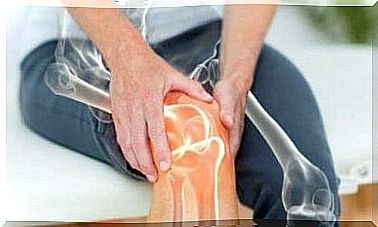Treating Minor Pain With 7 Natural Alternatives To Ibuprofen

Ibuprofen has analgesic, anti-inflammatory and antipyretic properties, among other things – that’s why it is so in demand.
It is not without reason that your doctor is the one who can prescribe medication that is tailored to your situation and can advise you about the intake. To prevent damage, it is good to visit your doctor for any condition.
Otherwise, in less severe cases, you can choose natural medicines, which reduce the pain in a more traditional way. Keep in mind that natural medicines can also have side effects, so it’s still a good idea to talk to your doctor before undergoing any treatment.
The biggest problems resulting from daily use of ibuprofen are as follows: diarrhea, abdominal problems, ulcers, headaches and even heart problems and attacks.
What are the natural alternatives to ibuprofen?
There are several plants and natural remedies that you can use when your health is not in serious danger.
And of course, if you don’t get better, you should always see your doctor as soon as possible.
Here are seven natural alternatives to ibuprofen:
Natural anti-inflammatories
Turmeric

Turmeric has anti-inflammatory properties. The herb helps keep your joints healthy. You can find it in both powder and pill form.
When to Avoid
Children under the age of three or people on blood thinners, who are about to have surgery, or who have gallstones should avoid turmeric. It is also not recommended to use during pregnancy.
Arnica
Arnica has anti-inflammatory and analgesic properties. The flower is mainly used for pain, muscle aches, muscle tears and rheumatoid arthritis. You can use them as an infusion of a teaspoon of dry plant in a cup of water. Dab the affected area with a clean cloth.
Only intended for external use! Arnica should never be consumed.
cayenne pepper

Cayenne peppers have analgesic and anti-inflammatory effects. Take advantage of this by incorporating it into your favorite meals. Remember that they have a strong and pungent taste. You will also need a quarter teaspoon of cayenne pepper in a glass of warm water. Drink slowly throughout the day.
You can also find the pepper in creams, ointments or oils at your health food store. Be careful that you do not inhale this pepper and that it does not come into contact with your mucous membranes. Always wash your hands well after use or use gloves just to be safe.
salix alba
Salix alba is used for its analgesic effects, for menstrual pains and as a treatment for muscle aches, headaches, arthritis and fever.
licorice

Licorice can be found in supermarkets, pharmacies and herbal stores in the form of tablets, pills, creams, etc. However, patients with Type II diabetes, high blood pressure, low potassium or hepatitis and pregnant women should not use it.
Avoid use with other medications. Tell your doctor that you use licorice root.
Ginger
Ginger has analgesic and anti-inflammatory properties. You can use ginger externally as an experimental treatment for arthritis, CTS, injuries, sprains, etc.
Foods with anti-inflammatory effects
- Fish (trout, salmon, sardines)
- Vegetable oils such as olive oil or flax oil
- Nuts and leafy vegetables, flaxseeds, almonds, hazelnut
Include these foods in your diet if you suffer from an inflammatory disease.
Remember that you will need good advice from a natural doctor regarding dosage and treatment time.
It may be natural, but you can’t just use these resources everywhere and for nothing. Get professional advice and use these remedies as recommended and you shouldn’t run into any problems.
Just a reminder…
If you are undergoing medical treatment, it is not an option to give up your medication and switch to these natural variants. In fact, these methods are only intended for people who prefer not to take medicines in case of minor pains, which are not a sign of a serious illness. These people should also always be aware of the potential risks and use common sense at all times.









